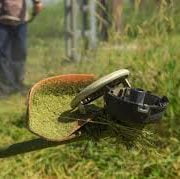You’re probably familiar with icebergs. One struct and sunk the Titanic, a sad sorry for the history books. But have you ever heard of a fatberg? Found in main sewers, fatbergs are an agglomeration of fat, grease, and other non-flushable wastes such as wet wipes. They may cause dirty water backup, odors, and flooding.
The largest fatberg was a 143-ton blob of nastiness discovered in London’s sewers. It had grown in sheer size as a result of negligent drainage use.
Save your dinner or lunch by not Googling pictures of fatbergs. Instead, let’s look at wastes you should never pour or flush down the drain:
1. Oily liquids, grease, fats, and cooking oil
Yes, avoid pouring cooking oil and left-over grease from your last meal. Additionally, watch out for other fats such as salad dressing from the house plants, mayonnaise, butter, dairy products, margarine, massage oils, and some soaps.
What happens after pouring down oily substances down the drain? Greases and fats stick to the inner walls of pipes. Over time, the blobs of fat agglomerate other non-flushable wastes before causing major blockages that may require help from a professional local plumber from teamemergencyplumber.com. If you flush a toilet with a clog, guess where the water goes. Yes, back to the toilet bowl resulting in a raw sewage backup.
2. Coffee grounds
So the advice goes: as long as you use enough water to completely flush the water grounds away, it’s okay to dispose of them down the sink. Well, that’s terrible advice. Coffee grounds tend to accumulate inside drains, resulting in serious clogs. They are prime building blocks for fatbergs.
3. Eggshells
Largely made of calcium, egg shells don’t break up as well as other kitchen wastes, even after they are ground down to bits. Another terrible piece of advice out there is to run eggshells through the garbage disposal unit to sharpen the blades. Actually, the units don’t have sharp impellers. They are blunt, and eggshells don’t have any effect.
4. Rice & pasta
If you are rinsing uncooked rice inside the sink, a few grains may escape down the drain. Don’t blindly watch them go. Rice has the capacity to absorb water and swell. It could spell trouble with your drain.
5. Medications
Medications may not clog your drains. However, they contribute to serious waterway pollution. Wastewater is typically treated before being released into another body of water.
Medications may pose an environmental risk to organisms that inhabit various water bodies, such as rivers, lakes, and oceans.
The proper way to dispose of medication is in the trash and in a sealed container. Pharmacies can help dispose of unused medicines through drop-off boxes and mail-back programs.
6. Flour
You may have dealt with sticky dough in past. Just imagine what it can do inside your drains. It will not only attach to the walls of the pipe but attach to other solid wastes.
7. Produce stickers
Little plastic food label stickers may seem harmless. Now, imagine if 1,000 households put produce stickers down the drain. Water treatment plants have reported that the stickers clog filters and screens. They even end up in the ocean or other water bodies. Actively avoid other small pieces of plastics, including food wraps, and bottle caps.
8. Flushable wipes
Here is a dirty little secret many plumbers have uncovered. Some of the products that claim to be 100% flushable and biodegradable remain intact for an extended time, resulting in sewer line clogs. It’s best to avoid flushable wipes altogether until it’s definitely established that they can start breaking down the moment they hit the water.
9. Condoms
Many people tend to flush away condoms. Condoms are made from latex, making them impossible to dissolve in water. Some actually end up polluting the oceans and water bodies. Live by this simple rule, and you’ll be okay: “If it’s not toilet paper, don’t flush it away.” The toilet is not a portal to another dimension. The non-flushable wastes may not even make it beyond your sewer line which will end ruining the hot tubs on decks or swimming pools because the sewer system reacting.
10. Paint
The sink offers a convient solution for disposing left over paint after a DIY project. Now, paint may be liquid and dissolve in water. But the left-over paint can stain the pipes. It contains chemicals that can leech into ground water, resulting in pollution.
11. Kitty litter
You may be either using regular or flushable cat litter made from corn, wood chippings, or wheat. The general advice is to not flush any kind of cat litter even the one that contains absorbent or biodegradable materials. Composing is the proper way to manage pet litter.
12. Harsh cleaning chemicals
It’s fine to use dish soap and normal cleaners for regular house cleaning. However, you should avoid harsh industrial-grade cleaners and certain drain cleaners.
What if I have a garbage disposal?
You can still have a garbage disposal and experience clogs. The garbage disposal only grinds down the food particles and sends them along with wastewater. You should still avoid items such as coffee grounds, pasta, rice, flour, paint, etc.
All in all, remain conscious about what you put down the drain. If you notice that one drain is having draining issues, call a plumber for professional drain cleaning or inspection.














[…] grease or oil is one thing, but there are also other things that you should never throw down the drain or the garbage disposal. You should never throw fruit scraps and vegetables into […]